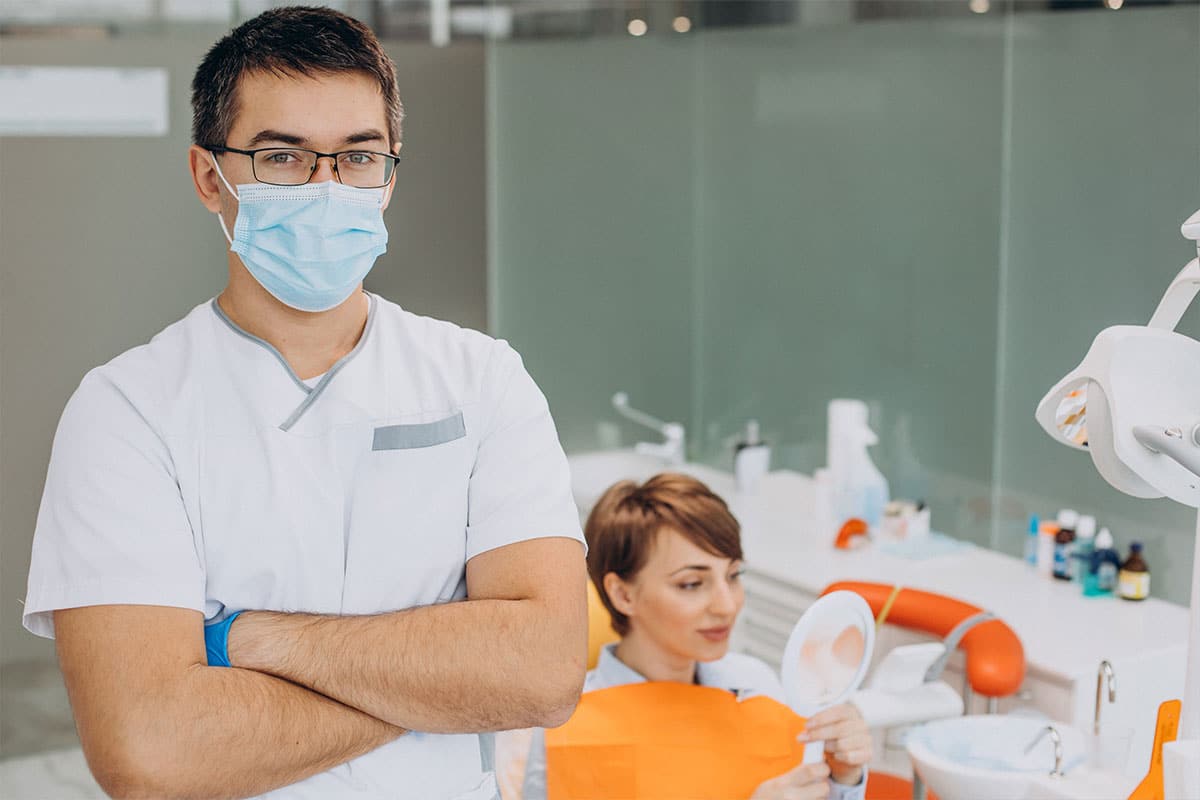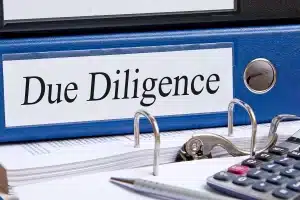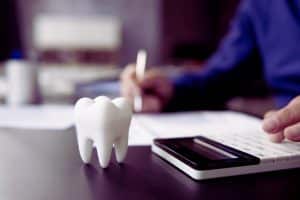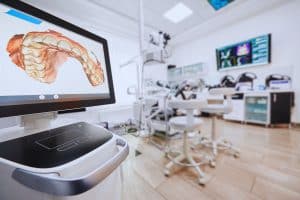Dental offices are considered a safe and sterile environment, where patients come for their oral health needs. However, dental offices, like any other medical setting, carry some potential risks. According to the Centers for Disease Control and Prevention (CDC), there are some common safety hazards in dental offices that can lead to injuries or illnesses. To ensure the safety of patients, staff, and visitors, dental offices must follow specific safety protocols to mitigate these risks.
Explanation of Risks Faced by Dental Offices
Dental offices face several potential risks, including exposure to infectious diseases, chemical hazards, ergonomic hazards, radiation exposure, and other safety hazards. These risks can cause severe injuries or illnesses to dental professionals, patients, or visitors if not adequately addressed.
Common Safety Hazards in Dental Offices
- Infectious Diseases: Dental professionals are at risk of exposure to infectious diseases through contact with patients’ blood, saliva, or other body fluids. This can occur through needlestick injuries, cuts, or exposure to splashes or sprays. Dental offices must follow strict infection control protocols to reduce the risk of transmission of infectious diseases.
- Chemical Hazards: Dental offices use chemicals such as disinfectants, sterilants, and amalgam for fillings. These chemicals can cause skin irritation, respiratory problems, and other health issues if not handled correctly. Dental offices must store, handle and dispose of these chemicals following safety protocols to minimize exposure risks.
- Ergonomic Hazards: Dental professionals spend extended periods in uncomfortable positions, leading to musculoskeletal injuries such as neck pain, back pain, and carpal tunnel syndrome. Dental offices must have ergonomic equipment such as chairs, lights, and stools to reduce the risk of such injuries.
- Radiation Exposure: Dental professionals who take x-rays are at risk of radiation exposure, which can cause cancer, cataracts, and other health problems. Dental offices must follow safety protocols such as wearing lead aprons and using proper shielding to minimize radiation exposure.
- Other Safety Hazards: Dental offices also face other safety hazards such as slips, trips, falls, electrical hazards, and fire hazards. Dental offices must have safety protocols in place to mitigate these risks.
Best Practices for Mitigating Risks
To mitigate the risks associated with dental offices, the following best practices should be followed:
- Infection Control: Dental offices must follow strict infection control protocols such as hand hygiene, personal protective equipment (PPE), and surface disinfection to prevent the transmission of infectious diseases.
- Chemical Safety: Dental offices must have proper chemical storage, labeling, handling, and disposal protocols to minimize exposure risks. Staff should be trained on the safe use of chemicals and the potential hazards associated with them.
- Ergonomic Equipment: Dental offices must invest in ergonomic equipment such as chairs, lights, and stools to reduce the risk of musculoskeletal injuries. Staff should be trained on proper posture and positioning during procedures.
- Radiation Safety: Dental offices must follow radiation safety protocols such as using lead aprons and proper shielding to minimize radiation exposure. Staff should be trained on the proper use of x-ray equipment and the potential risks associated with radiation exposure.
- Other Safety Hazards: Dental offices must have safety protocols in place to mitigate other safety hazards such as slips, trips, and falls, electrical hazards, and fire hazards. Staff should be trained on emergency procedures and evacuation protocols.
Infectious Diseases
Dental professionals are at a high risk of exposure to infectious diseases in their line of work. They can come into contact with patients’ blood, saliva, or other body fluids, which can contain harmful pathogens. The transmission of infectious diseases can occur through needlestick injuries, cuts, or exposure to splashes or sprays.
To mitigate this risk, dental offices must follow strict infection control protocols to prevent the transmission of infectious diseases. These protocols include hand hygiene, the use of personal protective equipment (PPE) such as gloves, gowns, masks, and eye protection, and surface disinfection. Additionally, dental professionals should be trained in the proper handling and disposal of contaminated materials.
Chemical Hazards
Dental offices use a variety of chemicals in their daily operations, such as disinfectants, sterilants, and amalgam for fillings. These chemicals can cause skin irritation, respiratory problems, and other health issues if not handled correctly. Exposure to these chemicals can occur through inhalation, skin contact, or ingestion.
To minimize exposure risks, dental offices must have proper chemical storage, labeling, handling, and disposal protocols. Staff should be trained on the safe use of chemicals and the potential hazards associated with them. Additionally, proper ventilation systems should be installed in areas where chemicals are used.
Ergonomic Hazards
Dental professionals spend extended periods in uncomfortable positions, leading to musculoskeletal injuries such as neck pain, back pain, and carpal tunnel syndrome. These injuries can be debilitating and can lead to long-term health problems.
To reduce the risk of musculoskeletal injuries, dental offices must invest in ergonomic equipment such as chairs, lights, and stools. Staff should be trained on proper posture and positioning during procedures. Additionally, regular breaks should be encouraged to prevent fatigue and strain.
Radiation Exposure
Dental professionals who take x-rays are at risk of radiation exposure, which can cause cancer, cataracts, and other health problems. Exposure to radiation can occur through direct or scattered radiation.
To minimize radiation exposure, dental offices must follow safety protocols such as wearing lead aprons and using proper shielding. Staff should be trained on the proper use of x-ray equipment and the potential risks associated with radiation exposure. Additionally, regular monitoring of radiation levels should be conducted to ensure that exposure levels are within safe limits.
Other Safety Hazards
Dental offices face other safety hazards such as slips, trips, falls, electrical hazards, and fire hazards. These hazards can lead to injuries or even fatalities if not adequately addressed. To mitigate these risks, dental offices must have safety protocols in place. These protocols should include regular safety inspections, emergency response plans, and evacuation procedures. Staff should be trained on emergency procedures, and safety drills should be conducted regularly.
Importance of Compliance with Safety Regulations
Compliance with safety regulations is crucial for dental offices to ensure the safety of patients, staff, and visitors. Non-compliance with safety regulations can lead to injuries, illnesses, legal liabilities, and reputational damage. Dental offices must stay up to date with the latest safety regulations and ensure that their staff is trained on these regulations. Regular safety audits and inspections should be conducted to identify and mitigate potential safety hazards.
In conclusion, dental offices face various safety hazards that can lead to severe injuries or illnesses if not adequately addressed. To ensure the safety of patients, staff, and visitors, dental offices must follow specific safety protocols and invest in the necessary equipment and training to mitigate these risks. Compliance with safety regulations is crucial to avoid legal liabilities and reputational damage.
Ready to take control of your dental practice’s finances and achieve financial success? Fazal Mostashari is an expert in dental accounting and finance with a Master’s degree in Business Taxation and multiple certifications including CPA, PFS, CDFA, and CFP. He has extensive experience in dental practice financial management and can provide tailored solutions to help dentists achieve financial success. Contact Fazal today and get the ball rolling with a kick-off consultation.




